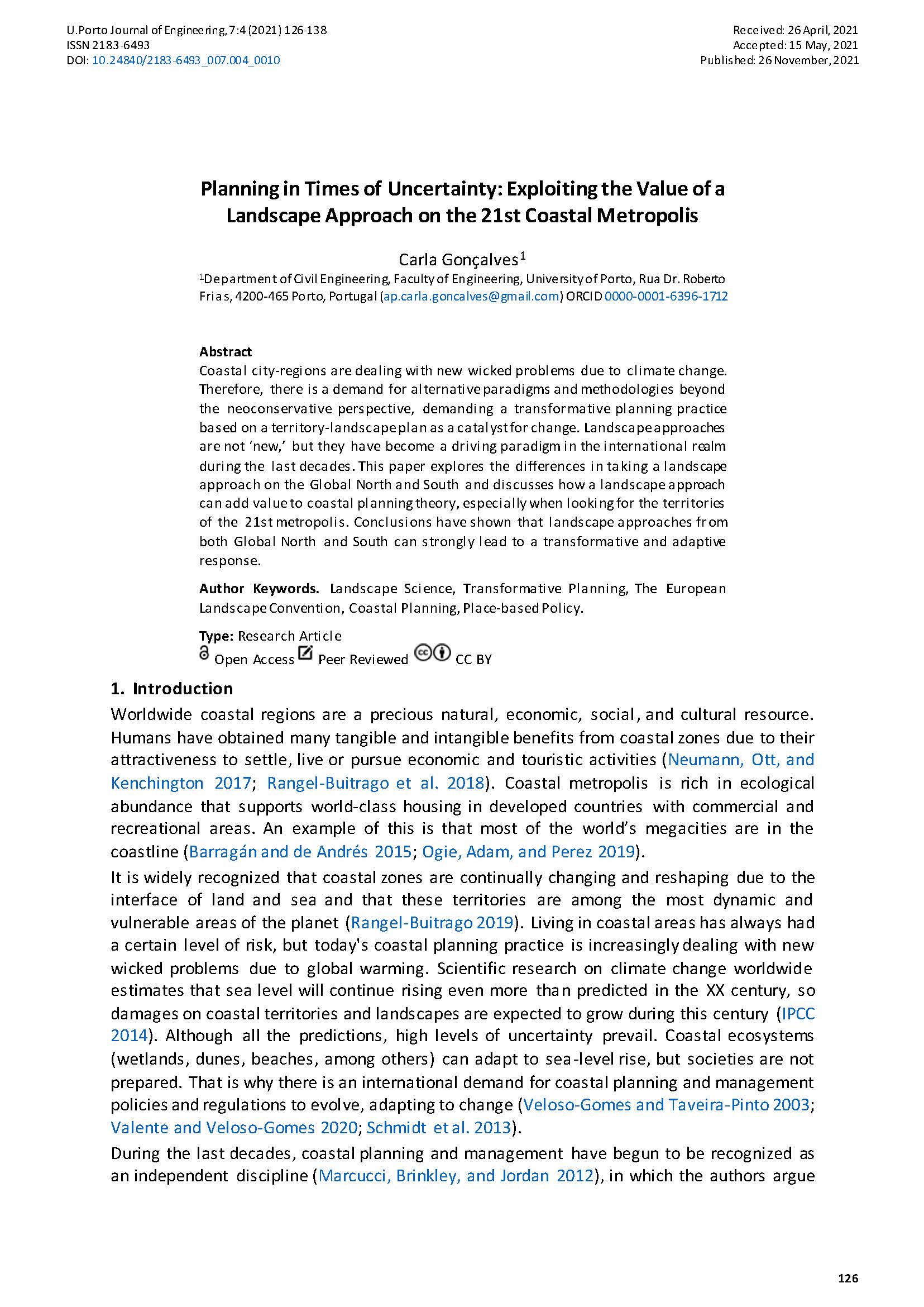Planning in Times of Uncertainty Exploiting the Value of a Landscape Approach on the 21st Coastal Metropolis
Main Article Content
Abstract
Coastal city-regions are dealing with new wicked problems due to climate change. Therefore, there is a demand for alternative paradigms and methodologies beyond the neoconservative perspective, demanding a transformative planning practice based on a territory-landscape plan as a catalyst for change. Landscape approaches are not ‘new,’ but they have become a driving paradigm in the international realm during the last decades. This paper explores the differences in taking a landscape approach on the Global North and South and discusses how a landscape approach can add value to coastal planning theory, especially when looking for the territories of the 21st metropolis. Conclusions have shown that landscape approaches from both Global North and South can strongly lead to a transformative and adaptive response.
Downloads
Article Details

This work is licensed under a Creative Commons Attribution 4.0 International License.
Authors who publish with this journal agree to the following terms:
- Authors retain copyright and grant the journal right of first publication with the work simultaneously licensed under a Creative Commons Attribution License that allows others to share the work with an acknowledgement of the work's authorship and initial publication in this journal.
- Authors grant the journal the rights to provide the article in all forms and media so the article can be used on the latest technology even after publication and ensure its long-term preservation.
- Authors are able to enter into separate, additional contractual arrangements for the non-exclusive distribution of the journal's published version of the work (e.g., post it to an institutional repository or publish it in a book), with an acknowledgement of its initial publication in this journal.
- Authors are permitted and encouraged to post their work online (e.g., in institutional repositories or on their website) prior to and during the submission process, as it can lead to productive exchanges, as well as earlier and greater citation of published work (See The Effect of Open Access).

